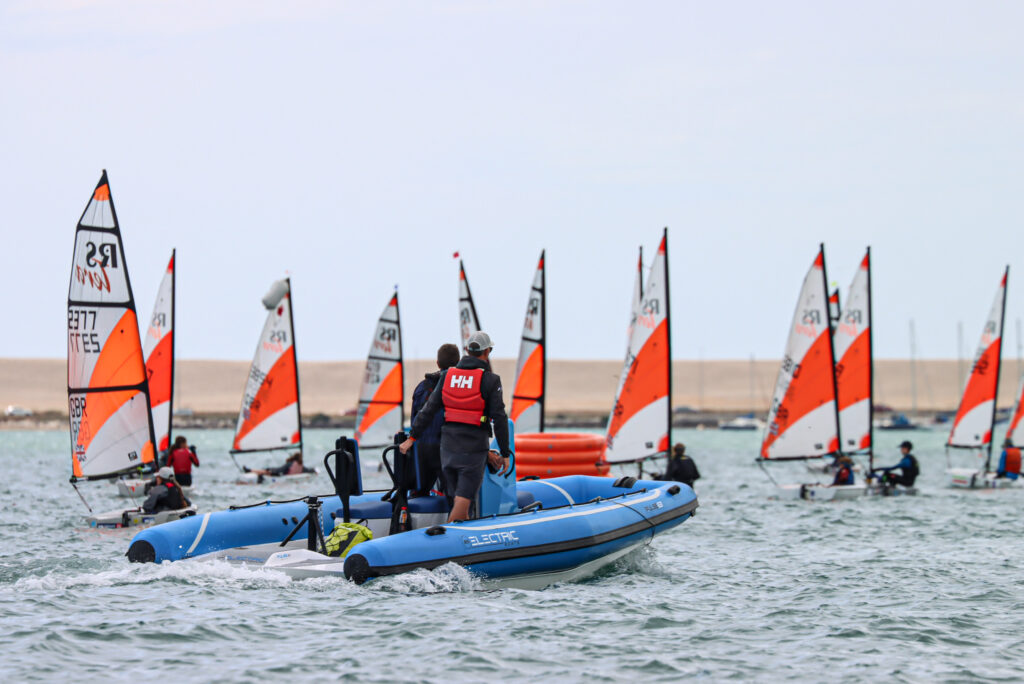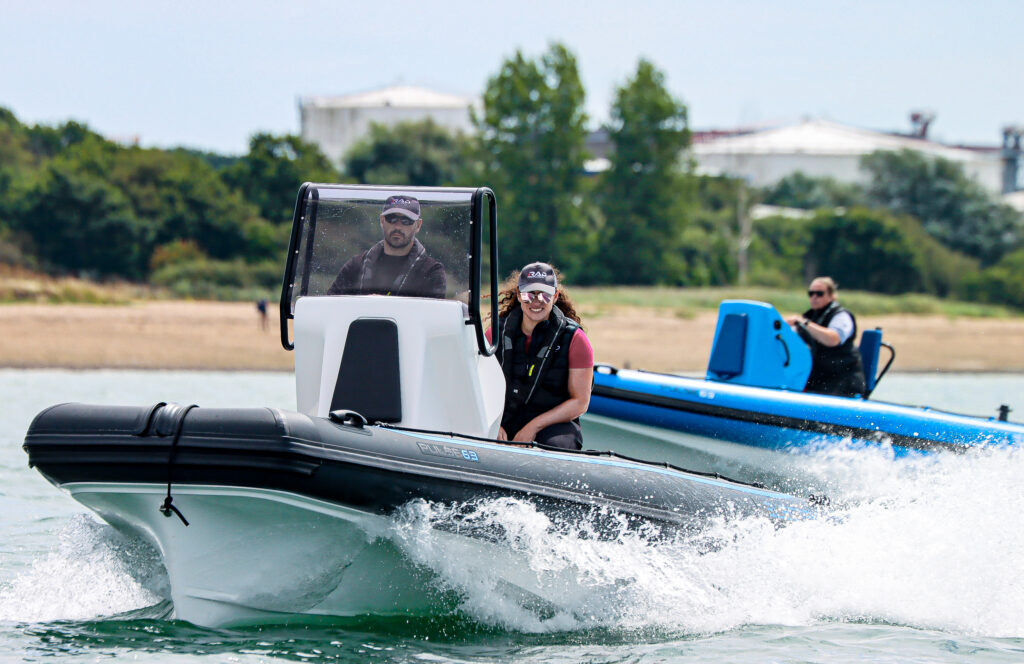
RS Electric Boats’ ZENOW project receives £4.1m grant
RS Electric Boats says its ZENOW (Zero Emission Network of Workboats) project has received £4.1 million in grant funding from the UK Shipping Office for Reducing Emissions and Innovate UK (as part of the Zero Emissions Vessels and Infrastructure competition).
The project will deploy the world’s largest network of electric workboats (twenty electric workboats, powered up by five new Aqua Superpower chargers), code them ready for service and (during a three-year period) analyse the data to provide evidence, advice and support for any of the circa 10,000 small harbours and marinas across the world getting ready to switch to electric.
The electric workboats, which include thirteen Pulse 63s, five 7.9m and two 8.9m Cheetah Marine electric workboats powered by RAD Propulsion’s RAD 40 drives and RAD 120 electric drives, will be delivered to ten UK locations by 1 March 2025.
This grant now brings the total project funding to £5.4 million.
The three-year demonstration phase, with various partners operating the vessels in representative environments, will produce sea trial data. That will be used to form part of the partners’ work to understand and develop how electric boats are used in practice, for example, by providing data on exact duty cycles and usage patterns. This data will enable ZENOW to advise on adopting electric technology in a maritime environment and help shape other geographical electric networks.
“This data will give us, and RAD Propulsion, the know-how to understand how people operate the vessels,” says Jon Partridge, CEO of RS Marine Group. “Electric boats are wanted all round the world, and ZENOW will be able to offer a series of like-for-like cases, giving people the confidence that electric can work in their environments.

“The network covers a broad sector of commercial work and activities. It’s a who’s who of leading businesses and operators with four harbours, the RYA (coaching), the Environment Agency and many more.
“The project has very good representation across the commercial marine sector, which means that not only will we be protecting the marine environment, we’ll also be creating blueprints for others in the sector. All harbours, marinas and ports globally will need to transition. They’ll be able to use our know-how.”
The twenty boats will be connected virtually, with the project’s technology partners, RAD Propulsion and Aqua SuperPower, delivering fleet-wide monitoring systems to collect operational and performance data. Data analytics will also be published by the University of Plymouth and used to enable partners to enhance their environmental performance, optimise operations, reduce costs and grow their businesses.
“This project will empower multiple UK workboat users to start their transition to zero-emission operations,” says Partridge. “It will enhance and support the market position of UK companies that provide electric boats and their supporting technologies while further strengthening Aqua SuperPower as the leading charging network in the maritime industry. ZENOW will aid the deployment of RAD Propulsion’s scalable family of electric drives and connected digital fleet technology. Put bluntly, it’s a game-changer for workboat users.”
Falmouth Harbour already has four vessels tasked with patrols, supporting novel technologies and scientific work and mooring checks. It will receive an RS Electric Pulse as part of the project and says that participating will help to demonstrate and build confidence in new clean technology while reducing other environmental impacts such as noise and pollution. More than that, the charging solution can be used by a plethora of harbour users, such as water taxis, yacht tenders and others.
“We are incredibly excited in Falmouth Harbour by this announcement,” says Miles Carden, CEO of Falmouth Harbour. “We are working really hard to decarbonise our harbour operations. Reducing our scope one emissions is key to this. We feel that electric propulsion will have a really important role to play in decarbonising smaller harbour vessels utilising lessons learned from the growing EV market. However, there are lots of questions that need to be answered relating to how the vessels will perform in use day to day. The funding from Innovate UK is crucial to accelerate the deployment of these new, clean and green technologies into daily use. The 20 vessels designed and built as a result of this project will start to answer some important operational questions.”
“RAD Propulsion is delighted to be working with RS Electric Boats as one of the winning ZEVI funding projects,” says Dan Hook, CEO of RAD Propulsion.

“This kind of funding is vital in helping us to accelerate the adoption of zero-emission vessels across the UK. It means we can bring together twenty commercial workboats with partners ranging from harbourmasters, universities and government agencies.”
Workboat operators involved in ZENOW include:
- The Environment Agency for river enforcement tasks on the Thames and in East Anglia
- A group of Harbour Commissioners, including Salcombe, Falmouth and Fowey, for harbour management operations
- Urban Truant Power for a foot passenger ferry service to the Isle of Wight
- Zero Marine Services for construction support and safety standby work, predominantly on the Thames
- Royal Yachting Association (RYA), the UK’s national power boat and sailing body
- Weymouth & Portland National Sailing Academy for coaching of all levels (from grassroots to Olympic), event management and safety boat operations.
Other partners include the University of Plymouth, Lloyd’s Register, Aqua SuperPower, Cheetah Marine International and RAD Propulsion (recently announced as a finalist for Maritime UK Solent Awards 2023).
“The International maritime industry is moving ever faster towards electrification and this project will help ensure that the UK is at the forefront,” adds Partridge. “This venture represents more than just a project for us at RS Electric Boats. It signifies a commitment, a leap towards a greener maritime future. Working together with our partners, we’re paving the way for a zero-emission revolution in the workboat sector.”
“RAD Propulsion is delighted to be working with RS Electric Boats as one of the winning ZEVI funding projects,” says Dan Hook, CEO of RAD Propulsion. “This kind of funding is vital in helping us to accelerate the adoption of zero-emission vessels across the UK. It means we can bring together twenty commercial workboats with partners ranging from harbourmasters, universities and government agencies.”
In July 2023, RS Electric Boats announced its new iteration of the Pulse 63, which features a RAD40 and increased battery capacity from 46kWh to 63kWh. The new set-up means the Pulse 63 enjoys extreme manoeuvrability; the propeller can turn 90 degrees in each direction, offering a fantastic 180 degrees — allowing the Pulse to spin in its own length.
The post RS Electric Boats’ ZENOW project receives £4.1m grant appeared first on Marine Industry News.
